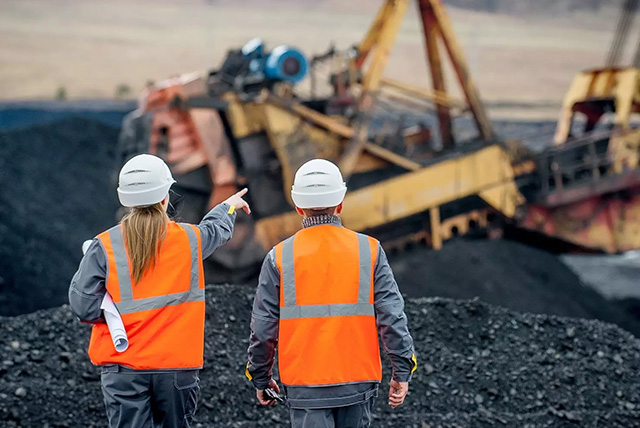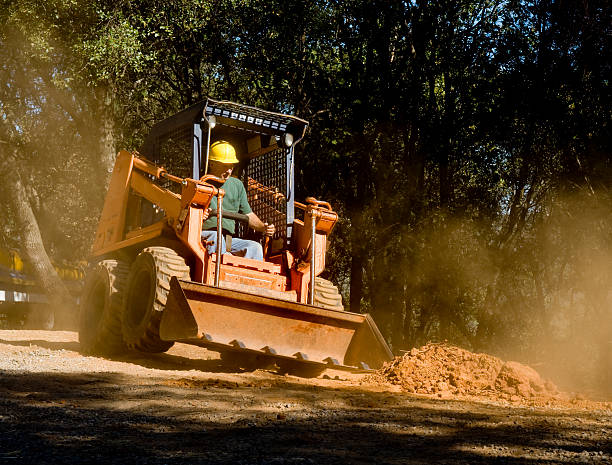Construction Equipment Appraisal: Assessing the Value of Building Assets
Construction equipment appraisal is a specialized service aimed at determining the worth of machinery and tools used in the construction industry. From heavy machinery like excavators and cranes to smaller tools like drills and saws, accurately valuing construction equipment is crucial for various purposes, including financial reporting, asset management, and transactional decisions. In this article, we explore the significance of construction equipment appraisal and outline the process involved in evaluating the value of building assets.
Importance of Construction Equipment Appraisal
- Financial Reporting: Proper valuation of construction equipment is essential for compiling accurate financial statements. It ensures that the balance sheets reflect the true value of assets, providing stakeholders with transparent information about the construction company’s financial health and performance.
- Asset Management: Effective asset management requires knowing the value of construction equipment. Appraisals help construction companies make informed decisions regarding equipment maintenance, utilization, and replacement, optimizing project efficiency and profitability.
- Insurance Coverage: Insurance companies often require accurate appraisals to determine the replacement cost or insurable value of construction equipment. In the event of damage, theft, or accidents, having a documented appraisal can expedite insurance claims processing and ensure adequate coverage to recover losses.
- Project Bidding and Estimation: Accurate equipment valuation is crucial for estimating project costs and preparing competitive bids. Construction companies rely on appraisal reports to factor equipment expenses into project budgets, ensuring profitability and competitiveness in the bidding process.
- Equipment Financing: When leasing or financing construction equipment, lenders may require appraisals as part of loan approvals. Accurate valuations provide assurance to lenders regarding the collateral’s value, facilitating financing arrangements for construction companies seeking to acquire or upgrade equipment.
- Business Valuation: Construction equipment appraisal contributes to the overall valuation of a construction business. Prospective buyers, investors, or lenders may request appraisals as part of due diligence processes to assess the value of tangible assets and determine the fair market value of the company.
Process of Construction Equipment Appraisal
- Inventory and Documentation: The appraisal process begins with inventorying and documenting all construction equipment and tools to be evaluated. This includes compiling information such as equipment specifications, purchase invoices, maintenance records, and usage logs.
- Selection of Appraisal Method: Appraisers choose from various valuation methods based on factors such as equipment type, condition, and market trends. Common appraisal methods include the cost approach, market approach, and income approach, each providing insights into the value of construction equipment from different perspectives.
- Physical Inspection: Appraisers conduct on-site inspections of the construction site or equipment yard to assess the condition, functionality, and marketability of construction equipment. They examine factors such as equipment age, usage hours, maintenance history, and compliance with safety standards and regulations.
- Market Analysis: Appraisers analyze market data, industry trends, and comparable sales to determine the fair market value of construction equipment. This involves researching recent transactions, benchmarking against similar equipment, and considering demand-supply dynamics in the construction equipment market.
- Valuation Report: A comprehensive appraisal report is generated, documenting the appraisal process, findings, and conclusions. The report includes detailed descriptions of construction equipment, valuation methodology, supporting evidence, and the appraiser’s professional opinion of value.
- Review and Certification: The appraisal report undergoes internal review and may be subject to external certification by qualified professionals. This ensures the accuracy, reliability, and compliance of the appraisal with industry standards and best practices.
- Client Consultation: Appraisers present the appraisal findings to construction company executives or project managers and provide guidance based on the valuation results. Clients may seek clarification or advice regarding equipment management strategies, investment decisions, or transactional negotiations.
- Update and Maintenance: Construction equipment values may change over time due to factors such as market fluctuations, equipment depreciation, and technological advancements. Periodic updates and maintenance of appraisals ensure that asset values remain current and reflective of market conditions.
Conclusion
Construction equipment appraisal is a vital process that provides construction companies and stakeholders with essential insights into the value of building assets. Whether for financial reporting, insurance coverage, or business transactions, accurate appraisals are indispensable in managing risks and making informed strategic decisions in the dynamic construction industry. By understanding the importance and process of construction equipment appraisal, construction companies can optimize their asset management practices, enhance project efficiency, and drive business success in the competitive construction market.






